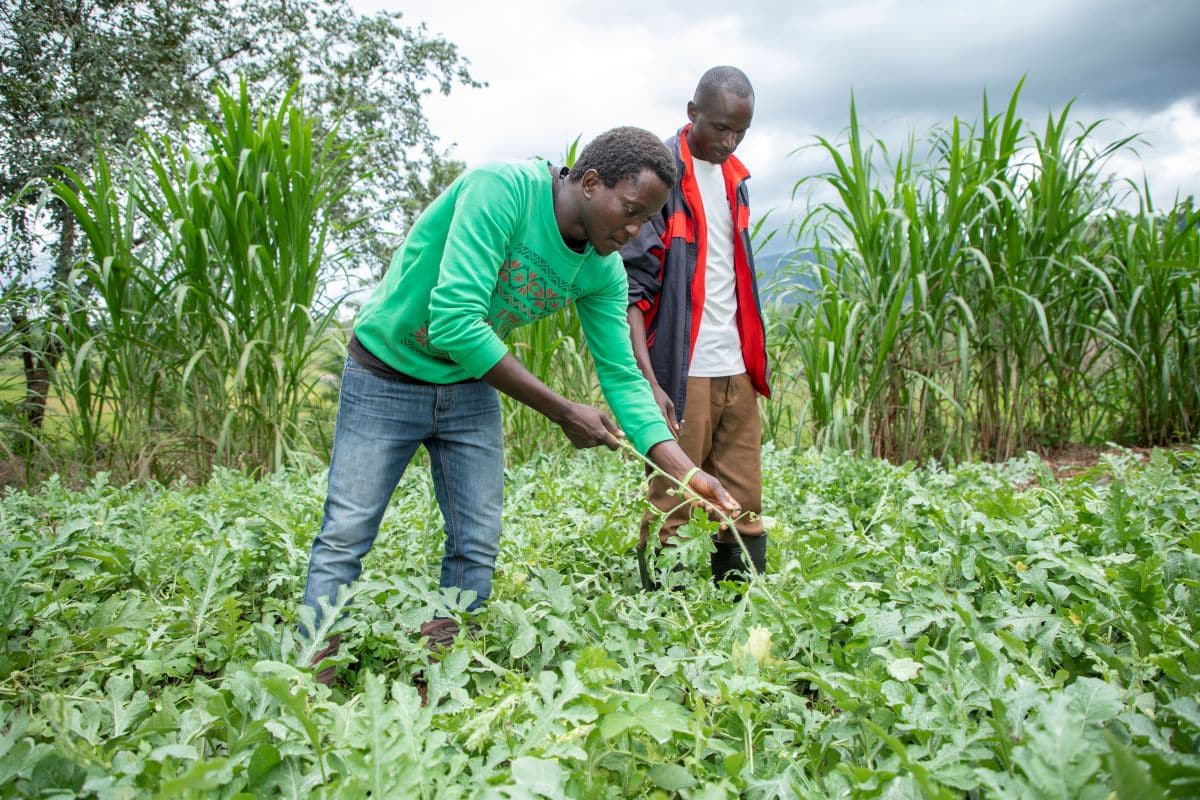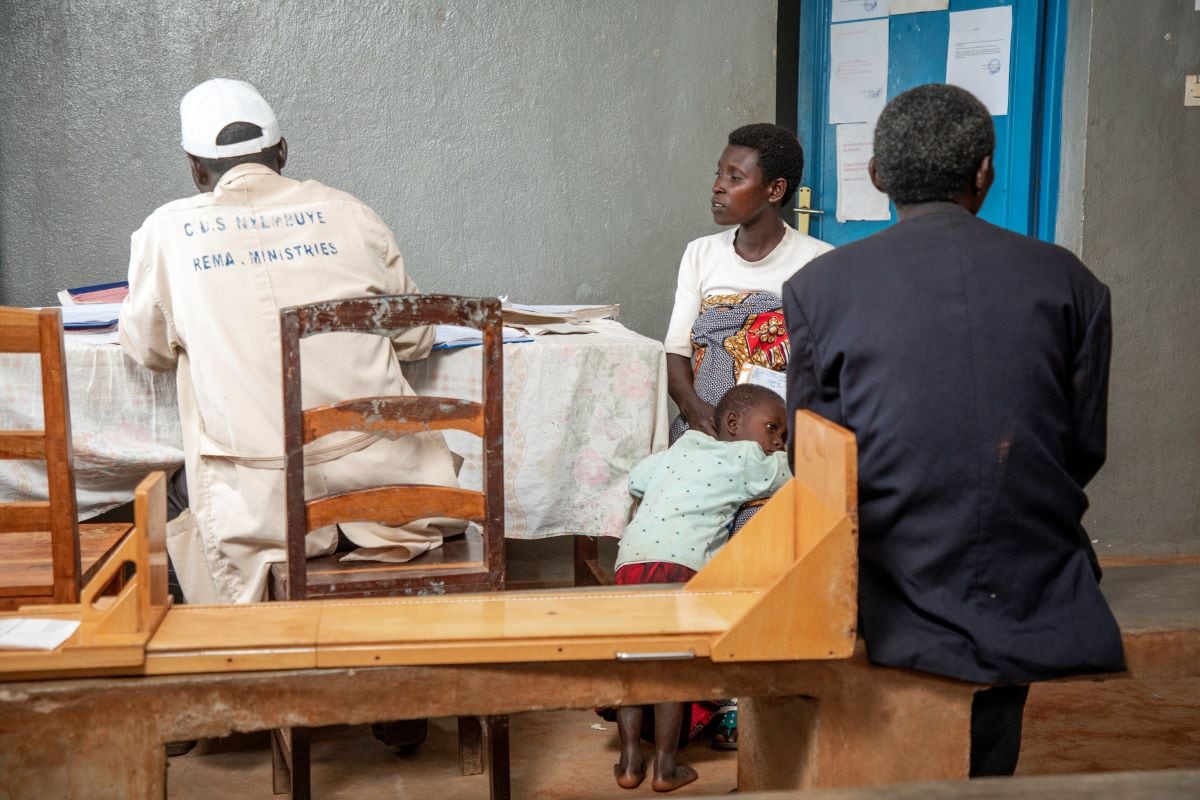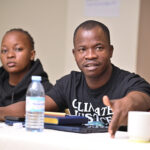Refugee stories usually focus on people’s journeys when they flee their country. But what happens when 200,000 refugees return home?
It’s a question playing out over the past six years in Burundi, an east African nation that has seen waves of displacement intermixed with periods of stabilization since the 1970s—but which receives little international attention or aid.
There, the Fund’s support of REMA addresses this forgotten refugee crisis.
REMA was created by former refugees to help individuals and families traverse what can be a bumpy road home. Returning refugees must navigate how Burundi’s society has changed as well questions like how to register births of children born in displacement camps. And in their absence, refugees’ homes, farms, jobs, and property have often been claimed by others. This leads to legal conflicts that can overwhelm local justice systems.

Former refugees Janvier and Sylvère on a farm set up by REMA in Rutana province (Credit: Edvard Ngendakumana/Majority World)
The Fund’s support and REMA’s work are critical: Following an electoral crisis and subsequent violence in 2015, nearly 300,000 Burundians sought refuge in Tanzania, Rwanda, Uganda, or the DRC. Even with greater political stability in Burundi following the 2020 general election, a situation which encouraged refugees to come back, underfunded camps with poor conditions and encouragement from strained governments have been major factors compelling two-thirds of the refugees to return.
This has led to some increases in international development aid for Burundi but does not adequately tackle the challenges they face or a lack of refugee voices at decision making tables.

People registering at REMA’s Nyembuye Health Centre (Credit: Edvard Ngendakumana/Majority World)
REMA and the Fund believe that refugees have the right to be safe and have access to nutritious food, clean water, sanitation, and key services like health care and education—both while displaced and upon returning home. And that the choice to come back should always be theirs.
In addition to supporting returning refugees in integrating back into their home country and communities, REMA also works with its own and neighboring governments. They conduct and share research around refugees’ needs both abroad and returning and advocate for policies that respect their right to choose if and when to come back.
Their work has secured key legal rights for returning refugees. Says Théodore Mbazumutima, REMA Executive Director:
Perhaps that the most achievement of our action has been the capacity to influence the change of the law that now accepts, as legal, marriages legally contracted between refugees in host countries. This had led to over 5,000 families to have access to their properties and other marriage related rights which they could not get otherwise.
When large-scale violence and the mass population displacements that go with it are rooted in identities and last for more than a generation, complex human rights issues arise. They are at the intersection of issues such as the right to life, dealing with traumatic memories, and fundamental economic rights, particularly land rights. With the Fund’s support, REMA continues to be one of the few organizations in Burundi that is working on several of these fronts at once.
Sign up to our newsletter
Add some impact to your inbox.
By submitting this form, you accept that your data will be stored and processed in line with our Privacy Policy.


